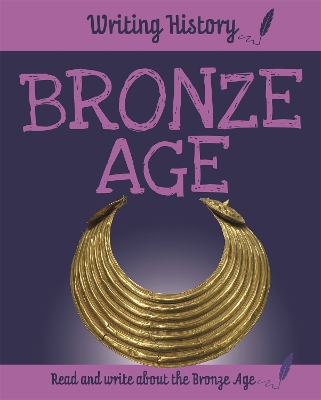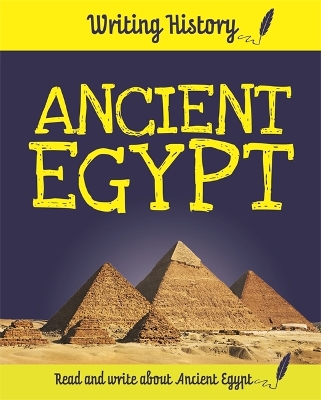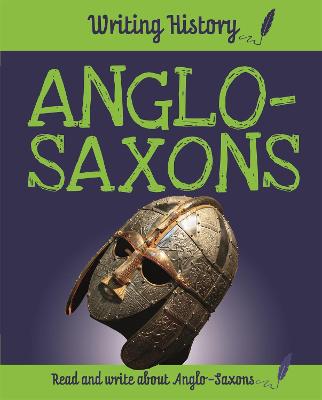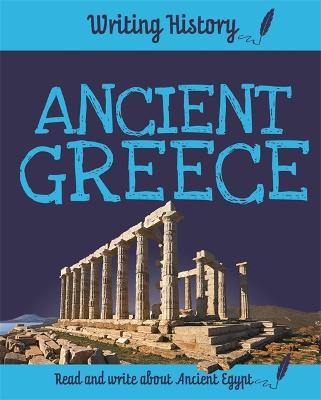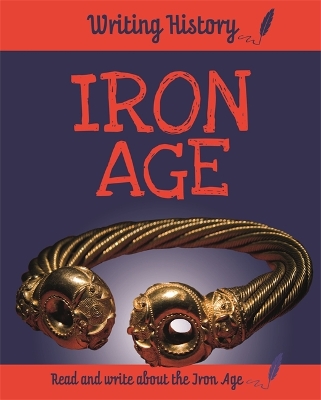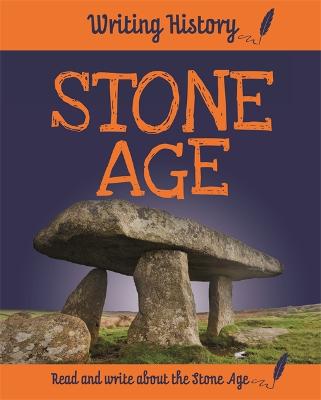Writing History
6 total works
Discover the Bronze Age and write about it!
Find out about the Bronze Age to discover how the skill of making bronze changed the way people lived, fought and farmed. Read about amazing archaeological discoveries and discover beautiful objects made by Bronze Age craftspeople.
Writing History is a series of fantastic guides to history with a difference! Each title explores different types of writing in six key historical periods: the Iron Age, Anglo-Saxons, Ancient Egypt, Ancient Greece, the Stone Age and the Bronze Age. The books use a variety of ways of presenting information such as diaries, letters, stories and even poems. Examples of original sources are also given. Children are encouraged to have a go themselves with their own writing projects using the information they have read. The series is ideal for readers aged 9+ studying history topics at Key Stage 2.
Discover Ancient Egypt and write about it!
Find out about life in ancient Egypt, from Egyptian fashion and culture, to ancient gods and important Pharaohs. Read about hieroglyphs and the Rosetta Stone and discover Tutankhamun's famous tomb.
Ideal for readers aged 9+, the Writing History series combines written evidence from the past with engaging writing activities to explore the fascinating worlds of ancient civilisations. Children can learn exciting facts and be inspired to write their own historical documents including diary entries, recipes, letters, speeches and much more!
Discover the Anglo-Saxons and write about them!
Find out about the Anglo-Saxons in Britain, from their daily life and culture to their kings, laws and famous battles. Read about the Sutton Hoo burial, King Alfred's cakes and the famous Beowulf poem.
Ideal for readers aged 9+, the Writing History series combines written evidence from the past with engaging writing activities to explore the fascinating worlds of ancient civilisations. Children can learn exciting facts and be inspired to write their own historical documents including diary entries, recipes, letters, speeches and much more!
Discover Ancient Greece and write about it!
Find out about life in ancient Greece, from Greek culture and language, to philosophers, myths and gods. Read about the origins of democracy, the all-important Olympic Games and the famous Battle of Marathon.
Ideal for readers aged 9+, the Writing History series combines written evidence from the past with engaging writing activities to explore the fascinating worlds of ancient civilisations. Children can learn exciting facts and be inspired to write their own historical documents including diary entries, recipes, letters, speeches and much more!
Discover the Iron Age and write about it!
Find out about the Iron Age in Britain, from Celtic life and culture, to typical jobs and roundhouse settlements. Read about Boudica's battles with the Romans and discover ancient festivals and stories.
Ideal for readers aged 9+, the Writing History series combines written evidence from the past with engaging writing activities to explore the fascinating worlds of ancient civilisations. Children can learn exciting facts and be inspired to write their own historical documents including diary entries, recipes, letters, speeches and much more!
Discover the Stone Age and write about it!
Find out about life in the Stone Age, from prehistoric homes to flint mines and mammoth hunts. Read about archaeological discoveries such as the 'Red Lady of Paviland' and discover amazing cave art.
Writing History is a series of fantastic guides to history with a difference! Each title explores different types of writing in six key historical periods: the Iron Age, Anglo-Saxons, Ancient Egypt, Ancient Greece, the Stone Age and the Bronze Age. The books use a variety of ways of presenting information such as diaries, letters, stories and even poems. Examples of original sources are also given. Children are encouraged to have a go themselves with their own writing projects using the information they have read. The series is ideal for readers aged 9+ studying history topics at Key Stage 2.
